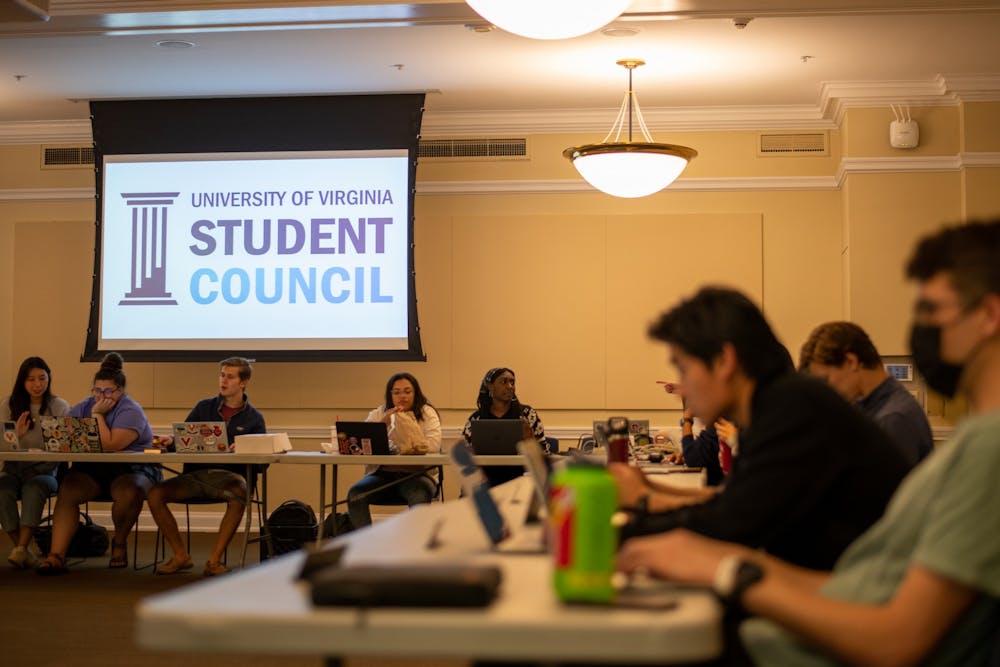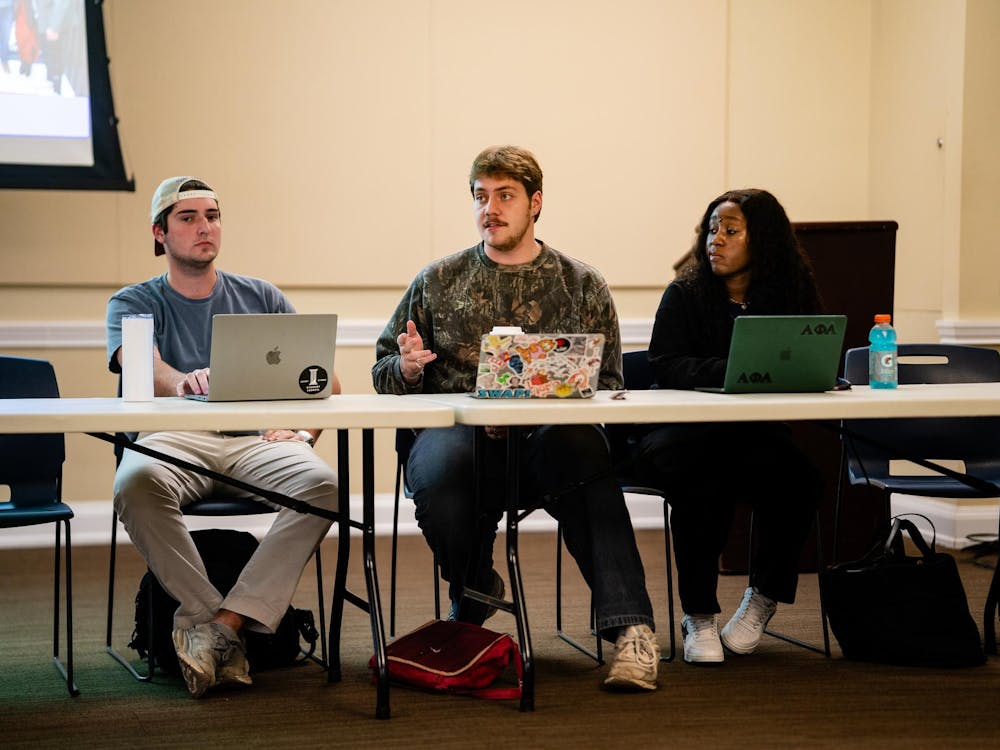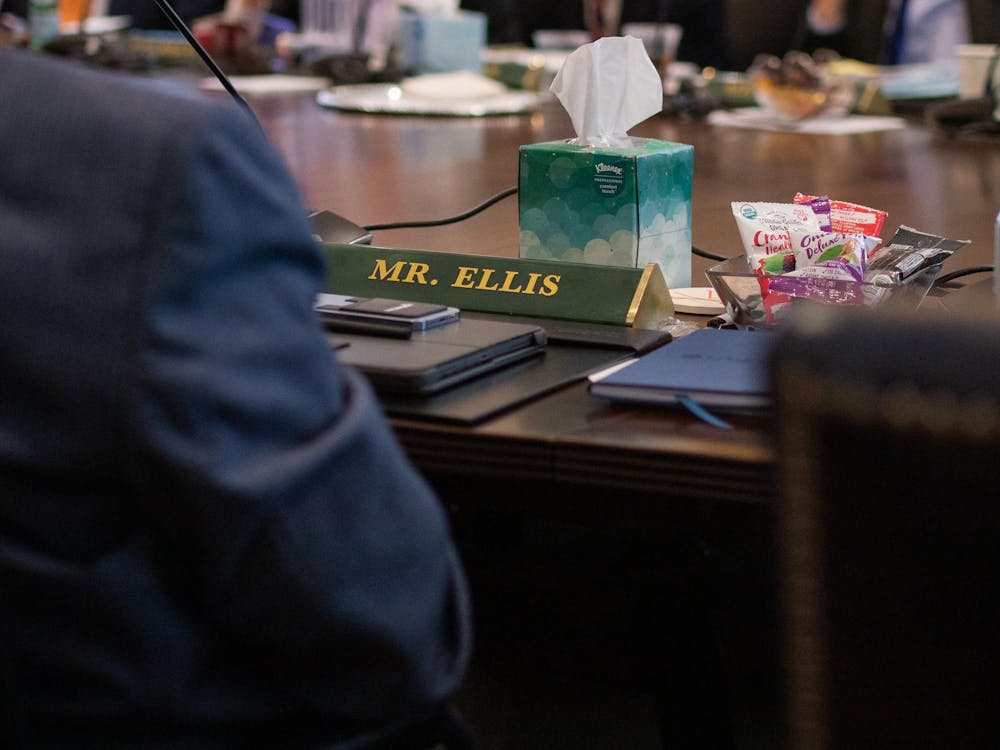Student Council’s summer 2023 budget was presented by Holly Sims, vice president for administration and fourth-year Batten student, at Tuesday’s meeting with significant cuts from last year’s budget. The proposed budget, which will operate from the end of the spring semester’s exams until the first few weeks of September, allocates a total of $59,852.60 to Student Council — a $34,380.05 decrease from last year’s summer 2022 budget.
Sims said the reduction in this year’s summer budget signifies more efficient spending by Student Council by cutting unsuccessful programs.
“We want to be able to spend money for initiatives that we know are successful,” Sims said. “A lot of the last two years was trying to figure out what would work and what wouldn't.”
The majority of Student Council’s funding comes from the Student Activities Fee, a fee raised to $56 for the upcoming fall that students pay as part of their tuition and fees to go towards providing financial support for student organizations. The proposed summer budget comes from around 91 percent SAF expenses and1 percent non-SAF expenses. Non-SAF contributions come from funding from the U.Va. Fund, part of the Alumni Association.
The most dramatic change in funding for the summer 2023 budget compared to the summer 2022 budget is the $24,250 decrease in allocations towards the Executive Administrative Operations Committee — a committee that facilitates the Student Council Executive Board’s programs.
Sims said that this drastic budget cut is due to Student Council ending its year and a half long University Networks of Care pilot program, which was aimed at creating a police alternative crisis intervention service for students in dorms suffering from mental health crises.
“In dorms, a lot of time police will respond to 911 calls about mental health crises, and in some cases have to arrest students in dorms,” Sims said. “We were trying to get a pilot going to pay for mental health professionals to respond to those instead.”
However, Student Council could not get approval to access sensitive information about how many mental health crises that police actually respond to in dorms, which Sims said was necessary to establishing the program.
“We tried several times to get the approval we needed to and once we had the approval, we would have spent that money to pay professionals to start the pilot for that,” Sims said. “But we just couldn't make it work.”
Diversity Engagement will also see a decreased budget for diversity grants — which allow Student Council to support multicultural student organizations and provide more equitable funding for Contracted Independent Organizations — by $1,350. Sims said that Student Council plans to cut this funding because it has been successfully allocating money to CIOs without need to use the grants.
Sims said that more multicultural CIOs have been requesting Student Council funding through the general CIO funding process. Fall semester budgets show that while only 9.75 percent of approved funding for Fall 2019 came from multicultural CIO requests, as of Fall 2022, that number increased to 20.20 percent.
“There are still some instances where CIOs need money in a pinch, so it exists for that now, but we're going to slowly wean off of diversity grants,” Sims said.
Other cuts in funding include a $5,000 cut to the summer Accommodation Fund, which provides additional financial assistance to students in need during the summer. Sims said that the Honor Committee donated $5,000 of their own money to this fund, allowing Student Council to cut the fund’s allocations without taking away student access to the summer assistance overall.
The Arts Committee also received a notable $6,500 cut in funding since Student Council plans to move its Arts Week from the fall semester to the spring semester, meaning this money will be present in its next round of budgetary planning.
Despite the major decrease in funding allocation for this summer compared to the summer 2022 budget, several committees also see increases to their budgets.
The greatest increase in funding compared to last summer goes to the CIO Consultants Committee, with an increase of $9,500. The Committee supports CIOs and develops resources for them to use, with one of their largest projects being the Students Activities Fair.
Sims said that this increase will pay for expenses from the Fall Activities Fair, which takes place before Student Council passes their fall budget. According to Sims, last year Student Council had to amend the budget to pay for tents at the fair, so this $9,500 increase will build these expenses into the budget.
The Membership Committee has a $2,150 increase in its budget for this summer to pay for Student Council social bonding and improvements to its membership bootcamp to train new members. The budget also allocates $1,600 to the Agency and Committee Bonding Fund within the Membership Committee, which promotes social bonding for Student Council committees.
Student Council previously split the money allocated to bonding — which is paid for mostly by non-SAF money — evenly between each committee’s budget.
“That was just tedious and some agencies were different sizes,” Sims said. “It wasn't super equitable for how people got to spend their money. So instead, all of that money is just housed in one committee.”
Other increases in the budget will go to International Student Affairs to fund programming and events for international students, as well as contributing more products to Student Council’s free store in the Student Activities Center — including at-home sickness tests, vaginal related health products and gender-inclusive wellness products.
Sims said during the meeting that the budget has extra funding built into the budget, including $592.60 in the Student Council Reserve, $500 in the Representative Body’s discretionary spending and $4,500 in the Executive and Administrative Operations’ discretionary spending, in the case any committees need more money during the summer.
The General Body voted to table the bill, meaning that it will be revisited and voted on next week. This action is in line with Student Council’s rule that the budget must be tabled before being approved.
The General Body also passed SB23-22, a bill to amend Student Council’s bylaws in regards to the budget timeline, creating an annual budget and a summer budget, as opposed to the previous system that required Student Council to make a fall, spring and summer budget. The bill will also allow any member of the Representative Body to implement budgetary changes.
The bill passed with 18 yeas, 0 nays and 0 abstentions.







